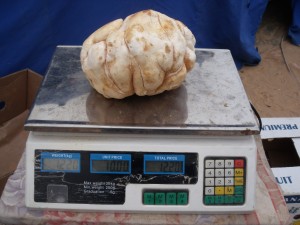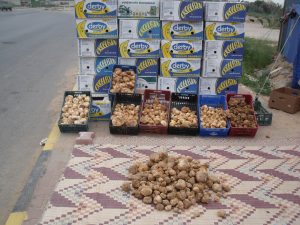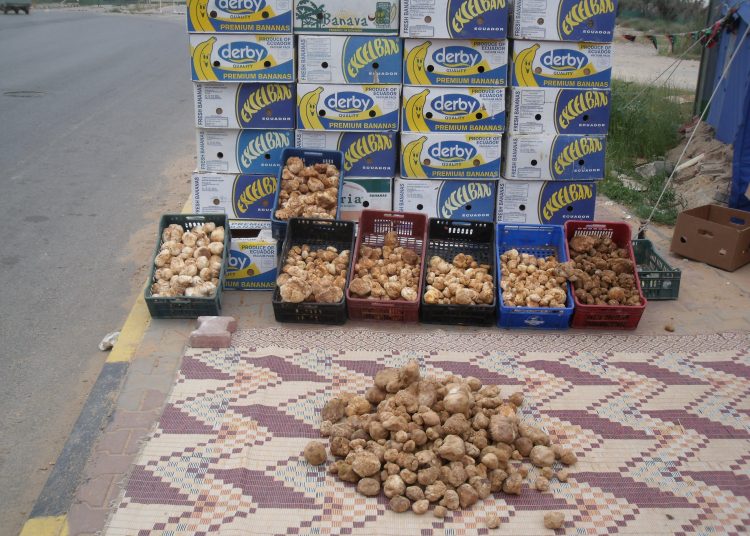By Magda Meliti.

Oxford, UK, 27 February 2013:
Whenever I used to complain about Qaddafi’s Libya to my father, he would tell me . . .[restrict]that Libya was in the small details. I remembered this, when I bought some blood oranges in a British market this week, which reminded me of Libya.
I was thinking this later, when reading the recent news, and thinking of the Libyan White Truffle Season of March 2012. It was not that long ago, on my way to work for an international organisation off Gargaresh Road in Tripoli.
It was a beautiful morning, and Faruiz was playing on Tripolitania FM. I asked my cousin, about the truffles that I saw being sold on street corners for small amounts, near to the center of town, and asked how good they were.

My cousin’s face lit up, after months and months of stress from all the instability and violence of the revolution, talking about how he would go truffle hunting with his paternal cousins outside Tripoli, and how he was quite good at finding them.
I became impressed, for truffles in Europe are a luxury had on special occasions in high quality Italian restaurants. He mentioned he was looking forward to doing regular trips again outside of Tripoli, as the truffle hunts start soon.
After Googling “white truffles”, I talked of how the Italians seemed to be the authority on them, but how we have them here in Libya in abundance. Other Arab countries such as Jordan have their black truffles. We conspired to bring the world expert, Giancarlo Zigante, and his dog Diana to Libya, so the world could see what we had. We joked about it for days, as we went to work daily listening to Faruiz in the morning on the radio.
Truffles were eventually found and bought to cheer me and my mum up from the regular blackouts, and the gun shots that happened nightly and regularly in early 2012. In my happiness, I Googled “white truffle recipes”. Recipes from Italy, in which you shaved the truffles and left them uncooked on top of cooked and buttered pasta, were attempted. The result was a disaster, but an edible disaster.
I lost faith, and left the remaining truffles, looking sad and smelly in the kitchen. My mum in an attempt to remove the smelly truffles, attempted to cook them with a little olive oil, garlic and parsley. The result was complete success, and I heartily recommend the Libyan recipe of cooking the truffles with olive oil, garlic and parsley over the Italian recipe of shaved uncooked truffles on top of cooked pasta.
It was little moments like these that reminded me why I love Libya and look forward to brighter times, and the white truffle seasons.
May all of the lands of the ‘Arab Spring’ have a stable and prosperous future.
Magda Meliti is a Researcher with a Masters of Letters in Oriental Studies from St Antony’s College, Oxford, England. [/restrict]










